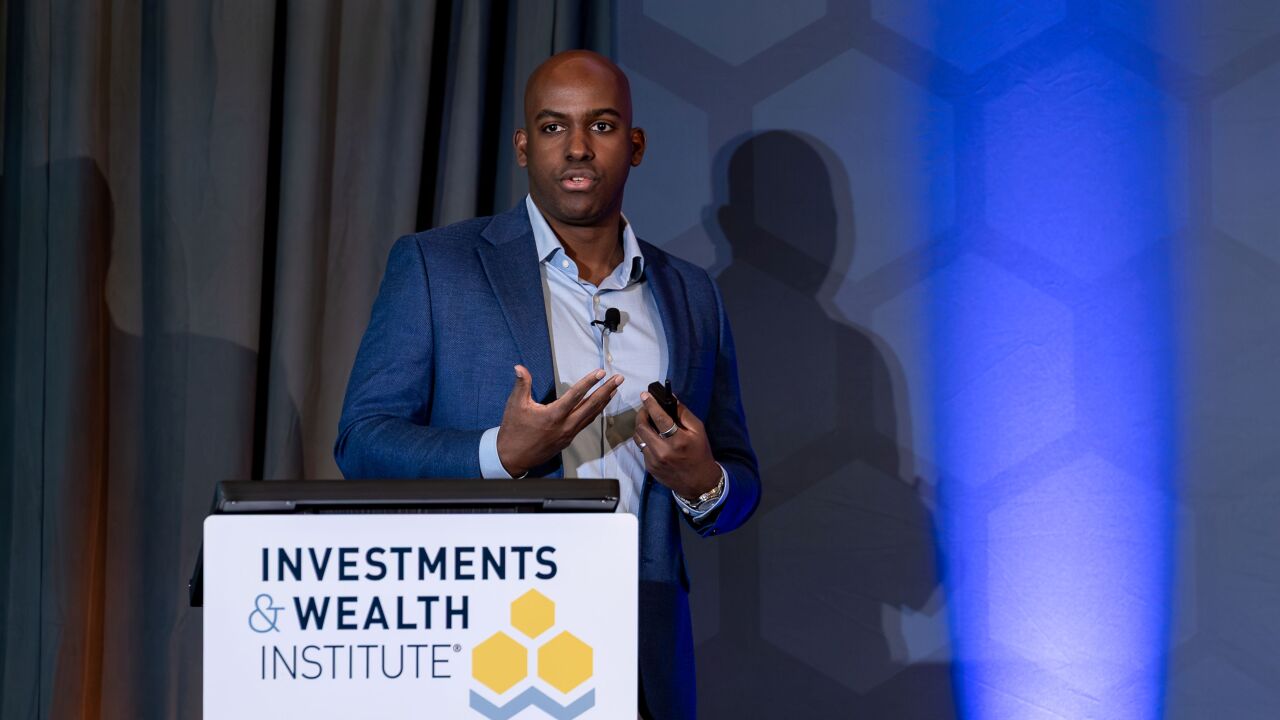Work is the new retirement.
Nearly 7 in 10 U.S. investors who aren't retired reported in a new survey that they plan on staying in the workforce longer. Nearly half will do so to make ends meet.
The findings, in a
Nationwide didn't say how many of the 521 individuals were "non-retired" — a key detail that would shed light on which age group is most actively rethinking what old age looks like and offer client management clues for financial advisors. And it didn't say what percentage of each non-retired income demographic planned on working longer.
The study also didn't quantify "working longer."
Still, it suggests that amid rising inflation and pressured markets, retirement stress is consuming not just struggling pensioners with side hustles bagging groceries to make ends meet. Worry about having enough money until the end appears to also pervade the thinking of some "mass affluent" and even ultrawealthy earners. Nationwide conducted its study in July and August 2022, as turbulent stock and bond markets, along with price spikes and talk of a recession, began crimping consumers' spending power.
"The idea we have of what retirement looks like has changed for many people, whether due to necessity or because they are looking to stay active and engaged,"
Later and longer
Research shows that
People are also living longer: Before the COVID-19 pandemic, a healthy 65-year-old man had a 55% chance of living to age 85. For a healthy 65-year-old woman, the chances clocked in at 65%, according to an American Academy of Actuaries and Society of Actuaries
The message
Research on working later in life isn't new. A 2018 Bain
What is growing is the bombardment of Americans with messages about their lack of "retirement readiness." Insurer Aon says that
It's a gloomy warning that lurked beneath a federal law last month aimed at bolstering retirement readiness. Known as SECURE 2.0, the law contains
The Nationwide study comes as demographics show that the future is old. The number of people age 65 and older in the United States is likely to increase by more than 50 percent to approximately 74 million individuals by 2030, a
But the Nationwide survey may also surface a disconnect between what people think they can do and what they're actually capable of doing. Among educated white people, the percentage who can
Purpose, activity, need
Disconnect aside, 69% of investors who are not yet retired told Nationwide that they planned to continue working in old age for one or more reasons. Six in 10 respondents said they would do so "to stay physically and mentally active," and 41% said they wanted "to preserve a sense of purpose."
But 44% cited the need "to supplement their retirement savings or income out of necessity." (The numbers don't add up to 100 because respondents could indicate more than one reason.)
Of the 521 people Nationwide surveyed, and the generation definitions it used:
- 97 were from Generation Z (age 8-25)
- 132 were millennials (26-41)
- 128 were Gen X (42-57)
- 145 were Boomers (58-76)
- 19 were age 77 or older ("matures")
The insurer's findings contrast with those of the Employee Benefit Research Institute, which found in its most recent annual retirement confidence survey that over 7 in 10 workers are at least somewhat confident, including almost 3 in 10 who are very confident.
Investors with advisors are stressed
Nationwide also polled 506 financial advisors. Slightly over half, or 52%, were independent advisors charging fees, while 64% were at wirehouses or independent broker-dealers. Another 10% were at banks, insurance companies and other financial institutions. More than 3 out of 4 advisors everywhere, or 78%, said they thought their clients might or would continue to work in retirement.
The survey also found that 49% of non-retired investors who are working with an advisor reported being "very nervous" about spending down their retirement savings in today's volatile market. By contrast, only 32% of investors without an advisor were worried.
That could be an indication that advisors aren't doing a good job of soothing nervous clients, or of "ignorance is bliss" for DIY savers — or both. Guymon said it showed "an opportunity for advisors to help calm nervous clients by reconfirming the importance of following their financial plan."
She added that savers without an advisor "could have some blind spots that a financial professional could help address."








